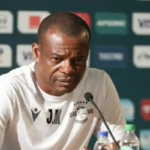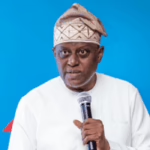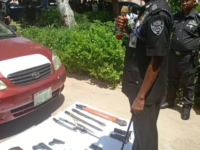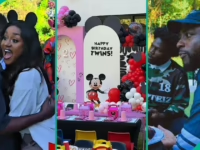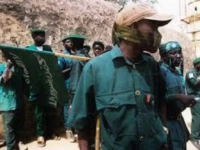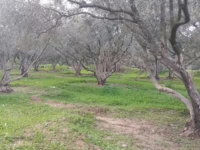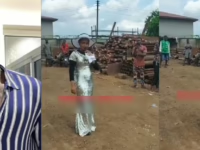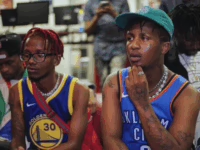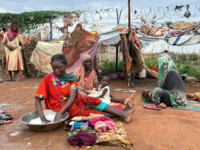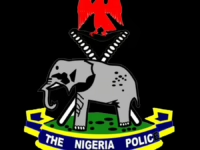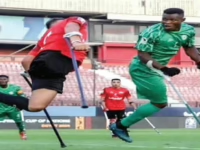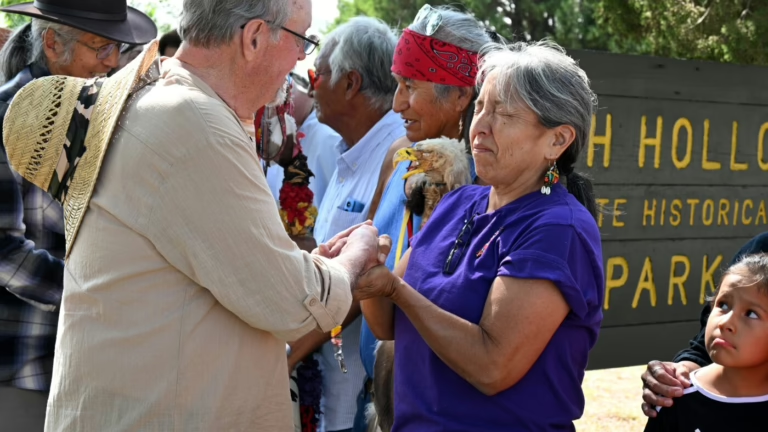Good morning! Welcome to the Up First newsletter. Subscribe here to receive it directly in your inbox, and tune in to the Up First podcast for essential news to kickstart your day.
Celebrating Indigenous Narratives
In honor of Indigenous Peoples’ Day, the Up First newsletter highlights NPR member stations’ dedication to amplifying Indigenous perspectives. These stations operate independently and locally, tailoring their programming to reflect the unique interests and needs of their communities, many of which have significant Indigenous populations.
Karen Little Thunder and her cousin Phil Little Thunder welcome attendees at a memorial ceremony held at Nebraska’s Ash Hollow State Historical Park on September 6.
Jessica Wade / Nebraska Public Media
Lily Hope, a master weaver of the Lingít people, employs the beloved Labubu dolls to promote awareness of Chilkat and Ravenstail weaving traditions. Committed to revitalizing this ancient art, Hope has empowered hundreds of Alaska Native artists to develop their own weaving skills. (via KTOO)
Natalie Zenk’s senior thesis uncovered a Native American statue in Cornell College’s art collection that had been overlooked for over a century. Her research revealed the artifact originated from the Etowah Indian Mounds, a Mississippian burial site in Georgia, far from the college’s Iowa location. (via Iowa Public Radio)
One and a half centuries ago, a tragic massacre of a Lakota community occurred near Lewellen, Nebraska, with the U.S. Army seizing numerous tribal artifacts. These culturally significant items were eventually donated to the Smithsonian Institution. Following extensive negotiations, the belongings have now been repatriated to the Lakota descendants. (via Nebraska Public Media)
Andre StrongBearHeart Gaines-Roberson Jr., a Nipmuc cultural guardian, educates on traditional Indigenous crafts and champions tribal stewardship of conservation lands. His advocacy highlights the dwindling population of Atlantic white cedar trees in Nipmuc territory-vital materials for constructing traditional Eastern Woodlands dwellings. (via WBUR)
The Pentagon’s recent diversity, equity, and inclusion policy under the Trump administration led to the removal of some Native American military heroes’ records. Although some content has been restored, KJZZ’s Gabriel Pietrorazio’s three-part series explores the lasting effects on families of Arizona legends such as Ira Hayes, Lori Piestewa, and the Navajo Code Talkers.
Got five minutes to spare? Our Living Lands is a weekly radio feature that investigates how climate change impacts Indigenous peoples’ health, culture, and environment. This segment is produced by a trio of Indigenous journalists in partnership with the Mountain West News Bureau, Koahnic Broadcast Corporation, and Native Public Media.
Indigenous Peoples’ Day Audio Highlights
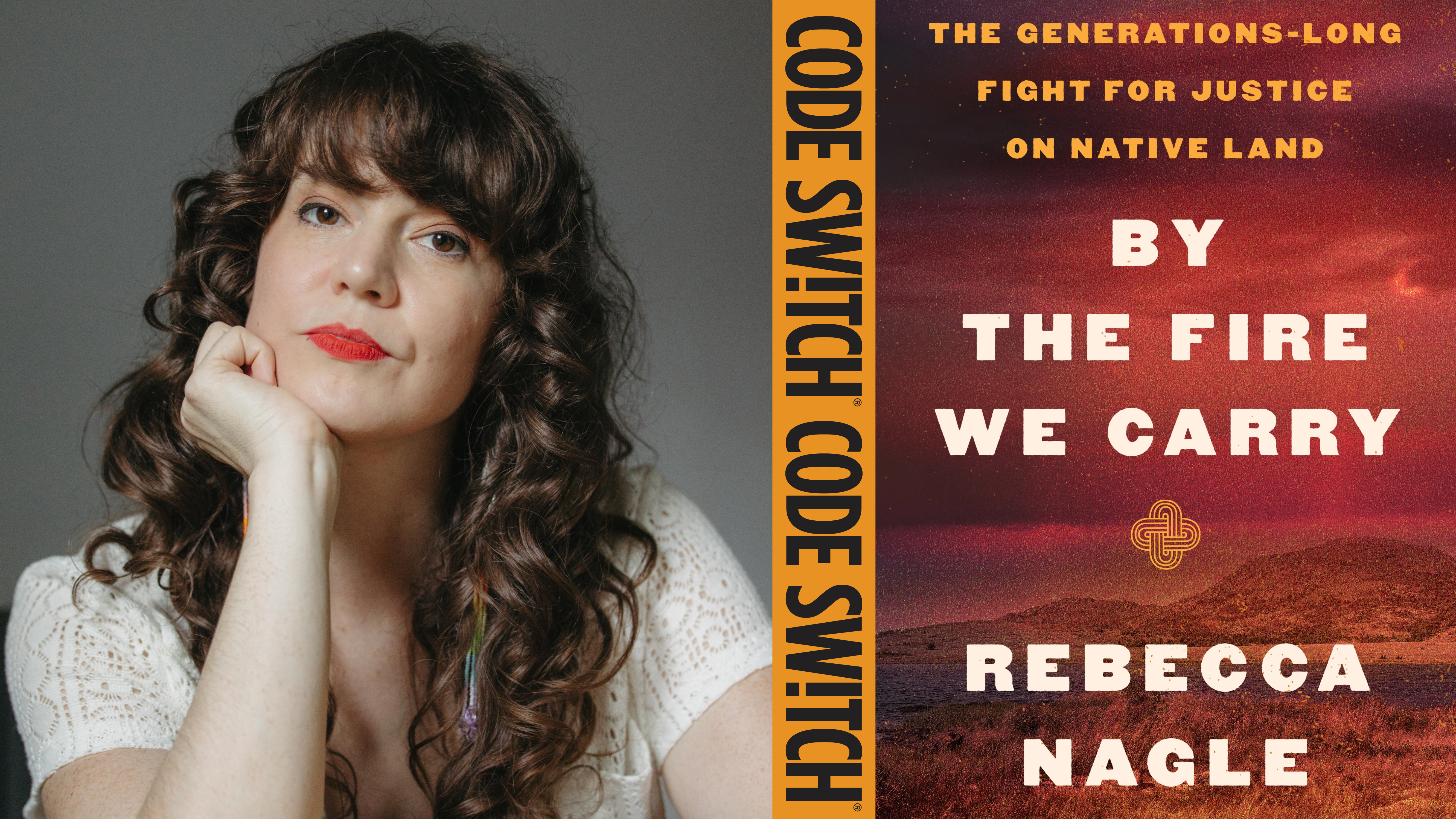
Journalist Rebecca Nagle stands beside her new book, By the Fire We Carry: The Generations-Long Fight for Justice on Native Land.
Photo credit: Brittany Bendabout
Common Land explores the intertwined history, science, and politics behind the establishment of a specific protected common land area.
- 🎧 Producer Matt Podolsky embarks on a challenging Appalachian Trail hike with his 65-year-old mother, Candy. Facing harsh weather, health setbacks, and injuries, they traverse 2,200 miles from Georgia to Maine. Along the journey, Podolsky shares captivating stories about the trail’s rich history, remarkable individuals, and contemporary issues as the trail celebrates its centennial.
The Evergreen offers an audio journey through the Pacific Northwest, highlighting the diverse people, places, and cultures that define the region.
- 🎧 At Central Oregon’s High Desert Museum, the “Sensing Sasquatch” exhibit invites visitors to engage with interactive, multi-sensory installations. The exhibit presents Native American perspectives on the legendary Sasquatch, also known as Bigfoot or “the big guy.” This episode features insights from three co-curators: Charlene Moody, Frank Buffalo Hyde, and Philip Cash Cash.
Curious City is a WBEZ podcast that answers questions from listeners about the Chicago metropolitan area, fostering transparency and community involvement in journalism.
Code Switch examines how race influences all facets of society-from politics and pop culture to history and cuisine-inviting everyone to join the conversation.
- 🎧 In a featured episode, Native journalist Rebecca Nagle discusses her book, By the Fire We Carry: The Generations-Long Fight for Justice on Native Land, which intertwines the history of Native displacement in the U.S. with a landmark Supreme Court ruling addressing these injustices.
Throughline dives beneath the headlines to explore the origins of today’s events. Hosts Rund Abdelfatah and Ramtin Arablouei bring history alive through sound and storytelling, covering everything from ancient civilizations to overlooked historical figures.
- 🎧 The term “reservation” suggests land set aside exclusively for Native Americans, but in reality, much of this land is fragmented. For example, the Leech Lake Band of Ojibwe in northern Minnesota owns only a fraction of its reservation, which includes private farms, federal forests, and resorts. In contrast, nearby Red Lake is one of the few reservations fully owned by its tribe. This episode takes listeners on a road trip through both areas, exploring their divergent histories and futures.
The Internet Says it’s True uncovers forgotten histories, strange stories, and unbelievable facts. Hosted by Michael Kent, the show invites listeners to share curious tidbits, which he investigates thoroughly. Each episode concludes with a quiz game featuring a celebrity guest.
- 🎧 In 1957, a remarkable artifact was found: a Viking penny from 11th-century Norway. While such finds are rare but not unheard of, this coin’s discovery on Maine’s eastern shore is extraordinary. This episode recounts the fascinating story behind the find.
Newsletter edited by Suzanne Nuyen.


